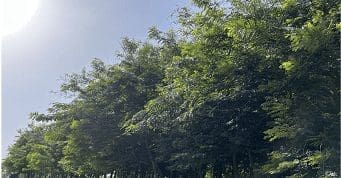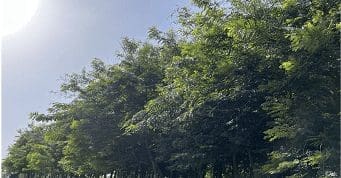
Cocoa producers from Côte d’Ivoire are driving what researchers describe as “colossal” illegal deforestation in neighboring Liberia, clearing hundreds of thousands of hectares of primary forest even as the European Union postpones regulations designed to curb such destruction.
A new investigation by the Initiatives for Community Development and Forest Conservation Association (IDEF), an Ivorian non-governmental organization (NGO), documents accelerating forest loss in Liberia’s southeastern border regions where Ivorian farmers have migrated to establish new plantations. The report reveals that plot sizes have exploded from 8-10 hectares per family last year to 50-300 hectares currently.
“The scale of deforestation is colossal,” said Bakary Traoré, Executive Director of IDEF. “In the localities we visited, all the families had ceded forest plots ranging from 50 to 300 hectares.”
Liberia harbors roughly 40% of West Africa’s remaining primary forests according to the Food and Agriculture Organization (FAO). But Global Forest Watch data shows the country lost 23% of its vegetation cover between 2000 and the present, with 150,000 hectares disappearing in 2022 alone—equivalent to more than 210,000 football pitches.
The migration stems from soil depletion in Côte d’Ivoire, where decades of intensive cocoa farming using pesticides and chemical fertilizers have degraded agricultural land. As establishing new plantations becomes increasingly difficult in Côte d’Ivoire, farmers are crossing into Liberia where vast forest reserves remain available.
Authorities in Liberia’s Grand Gedeh region registered 38,000 newcomers to cocoa farming recently. Traoré suggests the actual figure could be triple that number when accounting for those who evade official registration.
The investigation focused on border regions between Côte d’Ivoire and Liberia where the trend appears most pronounced. Forests are being leased through a system called “planté/partagé,” though confusion exists regarding the nature of sharing arrangements and their duration. Much of this land clearing violates Liberian law, according to the report.
Beyond environmental destruction, the investigation uncovered possible human trafficking and labor exploitation including probable involvement of minors. Thousands of young people are reportedly recruited through intermediaries to work the newly cleared plots without contracts or wages, relying instead on promises from “guardians” that they will receive shares once clearing is complete.
“What strikes you when you travel along country roads and through villages is the number of young men you see,” Traoré noted. “All the young people I met claimed to be 20 or older, despite their particularly youthful appearance. It is highly likely that they were advised to do so by those who brought them here.”
The European Union, which imports the vast majority of global cocoa production, adopted the EU Deforestation Regulation (EUDR) in 2023. The law prohibits marketing products on European markets if they contributed to deforestation or forest degradation after December 31, 2020. Seven commodities fall under the regulation: coffee, cocoa, rubber, palm oil, soy, beef and timber.
But on September 23, the European Commission announced it was considering another one-year delay to the regulation’s implementation, currently scheduled for December 30, 2025. This represents the second postponement, as the original deadline was pushed from December 2024 to December 2025 last year.
The proposed delay stems from concerns about the readiness of information technology systems underpinning the law. Companies would need to demonstrate through detailed documentation and geolocation data that their supplies are legally produced and deforestation-free, requirements that demand sophisticated tracking infrastructure.
“While Europe dithers and keeps putting off the implementation of its law, there will be no forests left in Liberia and it will be too late,” Traoré said.
The EUDR could theoretically prevent cocoa produced through the deforestation documented in IDEF’s investigation from reaching European markets. Additionally, because Grand Gedeh is a peripheral region with limited links to Liberian commercial centers, beans from these illegally cleared areas risk entering Côte d’Ivoire’s supply chain, which would also violate the regulation since proper traceability couldn’t be established.
Côte d’Ivoire produces approximately 2.2 million tonnes of cocoa annually, representing roughly 45% of global output. The country exports most of its production to Europe, making European regulations particularly significant for Ivorian producers.
The situation has created tensions with local Liberian communities. Land ownership has been highly sensitive in Liberia since the civil wars of the 1990s, and the current wave of land leasing for cocoa cultivation is happening in violation of Liberian land rights laws according to the report. Some plantations reportedly encroach on existing concessions.
“Land grabs have led to conflicts and tensions between community leaders, community members and cocoa farmers,” said Andrew Y. Y. Zelemen, Secretary of the National Union of Community Forestry Development Committees (NUCFDC) of Liberia. Violent incidents occurred in the Gbarzon district of Grand Gedeh earlier this year related to these disputes.
The report calls for better collaboration between Ivorian and Liberian authorities to manage the cross-border migration and its environmental consequences. It also urges the Liberian government, specifically the Liberia Land Authority, the Forestry Development Authority and the Ministry of Internal Affairs, to intervene.
The European Union’s head of delegation to Liberia recently warned that the country’s credibility as a cocoa exporter could be undermined if production continues to be linked to deforestation, acknowledging growing concerns about the situation.
Whether the EUDR will ultimately curb deforestation when implemented depends on enforcement mechanisms and whether companies can actually trace their supply chains with the required precision. Many smallholder cocoa farmers operate informally, making documentation challenging even without deliberate evasion.
The regulation also places compliance responsibility on companies importing cocoa into Europe rather than on producing countries directly. This means European chocolate manufacturers, processors and traders must verify their suppliers aren’t contributing to deforestation, creating economic pressure that filters back through supply chains.
For Liberia, the stakes extend beyond environmental concerns. The country is attempting to position itself as a legitimate cocoa supplier in global markets. If its emerging cocoa sector becomes associated with illegal deforestation and labor exploitation, market access could become restricted even before the EUDR takes full effect.
Traoré warned that without urgent intervention, Liberia’s forest cover could disappear within a decade. “With the situation in Côte d’Ivoire and Ghana, we have the necessary hindsight to know that this situation will have a disastrous impact on the lives of communities that depend on forests and on subsistence agriculture.”
Ghana, the world’s second-largest cocoa producer after Côte d’Ivoire, has lost significant forest cover to cocoa cultivation over recent decades, providing a cautionary example of what uncontrolled expansion can produce.
The investigation underscores tensions between economic development pressures and environmental protection in West Africa. Cocoa provides livelihoods for millions of farmers, but the commodity’s production has historically come at severe environmental cost. Whether regulatory frameworks like the EUDR can break that pattern while implementation keeps getting delayed remains an open question.
